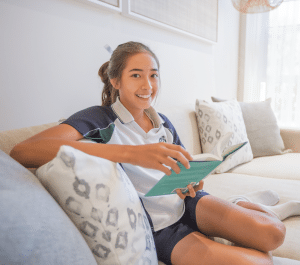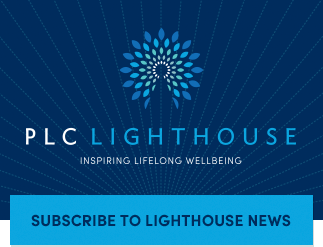Build Your Wellbeing Toolbox
Our wellbeing (physical, mental, social and emotional health) can change moment to moment, day to day, year to year, and can be influenced by what’s happening in our lives at any one time and the actions we take. 
There are many helpful tools that have been variously designed to help us learn about positive mental health and wellbeing, how to put these concepts into skills and practice, and how to support and communicate.
These tools have been recommended by Be You, and are most suitable for girls in Years 7 – 12.
Information
There is no shortage of information on the internet. When it comes to your mental health and wellbeing, it’s important you know where to find the most appropriate resources.
Useful resources and apps include:
The BRAVE Program: Online program supporting young people who are experiencing anxiety, as well as their families.
ReachOut: Practical support, tools and tips to help you get through anything from everyday questions through to tough times.
Bullying, No Way!: Tailored online information for students about bullying.
Headspace: Tailored information for 12 to 25-year-olds relating to general mental health, physical health, work and study, and drugs and alcohol.
Office of the eSafety Commissioner: Useful information and resources to help students stay safe online.
Practice
We can support ourselves and each other through tough times by learning and practising useful skills and habits. There is a wide range of apps that can help us to:
- develop resilience and coping skills
- track and manage our mood and thoughts
- improve our learning and communication skills
- track our physical health, including sleep, movement and nutrition
Useful apps and resources include:
Smiling Mind: A modern meditation, specifically for young people. It’s a unique web and app-based program, designed to help bring balance to your life.
Breakup Shakeup: An app that provides ideas for fun, easy things to do to help you cope after a breakup.
ReachOut: Professionally-reviewed mobile apps and tools to help you look after your health and wellbeing.
MoodGYM: An online program that helps you learn about cognitive behaviour therapy skills for preventing and coping with depression.
Digital Dog: A research group within the Black Dog Institute working to use technology to solve common mental health issues. They develop and test a suite of mobile apps, websites and games to help lower depression, suicide risk, reduce stress and promote wellbeing.
BeyondNow: A safety plan app that can be accessed and edited at any time. You can also email it to trusted friends, family or a health professional, so they can offer support during times of crisis.
Communication
Online communication tools, such as blogs, forums and social media can powerful protective factors, when used appropriately. The can help you to:
- connect with like-minded peers and communities
- seek and access professional and peer support
- have a way to say what you’re thinking and have your voice heard in a forum other than at school or at home
- organise and plan face-to-face communication
Useful apps and resources include:
Beyond Blue online forums: An online community open to anyone living in Australia with forums on topics related to mental health and wellbeing.
The Check-in app: An app to help you take the fear out of having a conversation with a friend who might be struggling.
eheadspace: Online and phone support for people aged 12 – 25 and their families.
Q Life: A national counselling and referral service, providing early intervention, peer-supported phone and web-based services to people who are LGBTI.
ReachOut Forums: Moderated peer-support community for 14 to 25-year-olds on mental health and wellbeing topics.
Yarn Safe: A safe space for Aboriginal and Torres Strait Islander teens to talk about mental health and social and emotional wellbeing.
Visit Be You to find out more about the information and resources available to you. Be You provides knowledge, resources and strategies for helping children and young people achieve their best possible mental health.

